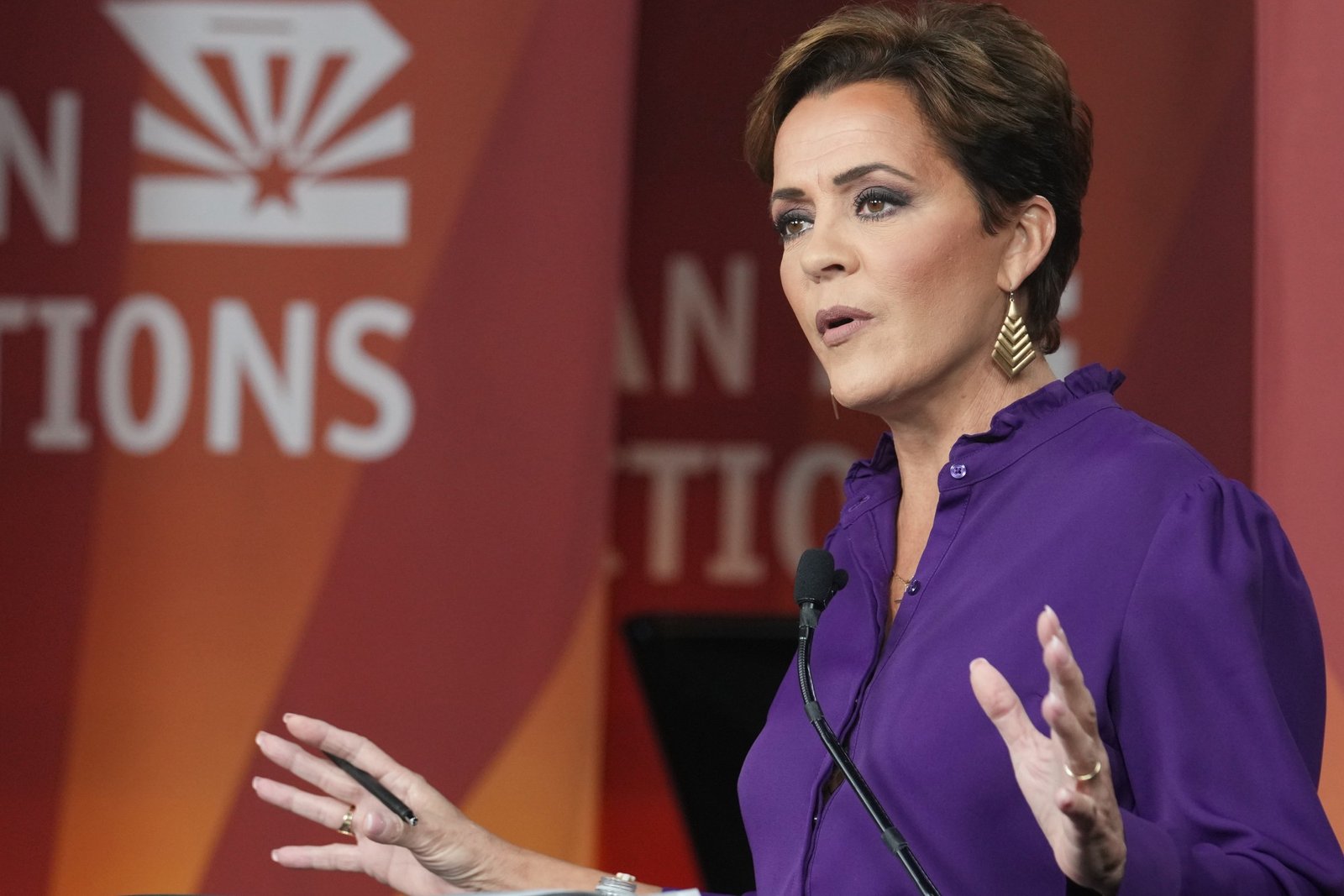#AZSEN
Kari Lake’s Email Evidence Discrepancy: A Defamation Case Raises Eyebrows

Republican U.S. Senate candidate Kari Lake is facing scrutiny in a defamation lawsuit, claiming the emails potentially relevant to the case have been erased. Lake’s attorney, Tyler Swensen, asserted during a recent court hearing that the campaign connected to the disputed emails ceased operations almost a year before Maricopa County Recorder Stephen Richer filed his lawsuit.
If Swensen’s assertion were accurate, Lake might not have had a duty to preserve those emails as evidence. However, records indicate that her campaign filed its last financial report in January 2024 and continued expenditures through December 31, 2023, contradicting the timeline presented in court.
Despite requests for clarification, Swensen did not respond to inquiries from the Arizona Mirror regarding his claims. Lake, a former television anchor turned political figure, has spent considerable time making unfounded allegations against Richer, linking him to unverified instances of election fraud that she claims affected her gubernatorial candidacy against Democratic Gov. Katie Hobbs.
Richer filed a defamation suit against Lake, her husband, and affiliated entities after enduring threats and harassment purportedly incited by Lake’s statements. He is seekings damages to cover security upgrades and compensation for reputational harm.
Lake previously accepted a default judgment in the defamation case, which effectively acknowledged the inaccuracy of her statements, despite her later assertions that they were true. She has suggested that the lawsuit distracts her from her current Senate campaign, which she officially launched in October 2023.
Now, following the default ruling, the focus shifts to determining damages. However, Richer’s attorneys have encountered challenges in obtaining necessary documents from Lake. In August, a judge ordered her to produce a variety of records related to defamatory communications, but compliance has been inconsistent.
During the hearing, Swensen maintained that all emails from Lake’s gubernatorial campaign had been deleted but offered unclear details about when and why this occurred. His claims of a systematic purge were met with skepticism by Judge Randall Warner, who emphasized the importance of factual evidence over assumptions.
Lake’s email addresses remained the same, involving domains utilized during her gubernatorial campaign, as confirmed by ongoing payments to various digital service providers through 2023. Discrepancies between these financial activities and the timeline of her campaign’s dissolution raise questions about the claims made in court.
Richer’s legal team has struggled to navigate what they consider overly broad requests for documentation, leading to a protracted and cumbersome discovery process. Despite Lake providing some documentation, significant gaps have been noted by Richer’s attorney, who indicated that submissions were often inadequate.
The controversy surrounding Lake’s allegations continues to draw attention from both local and national media. More than 50 reports have been generated by the Arizona Mirror alone, highlighting her baseless claims regarding the 2022 election and the supposed misconduct of Richer.
Swensen has described Richer’s document requests as an attempt to interfere with Lake’s senatorial campaign, arguing that they are motivated by a desire to undermine her politically.


















